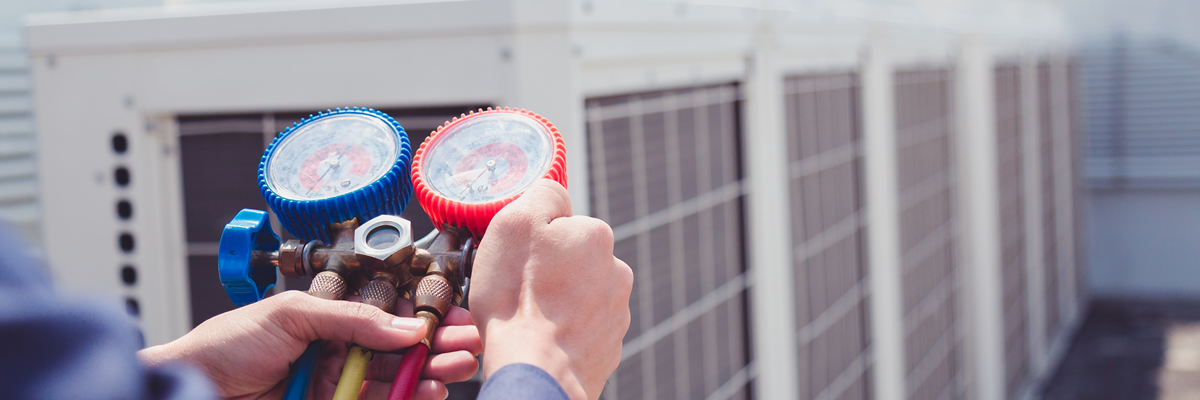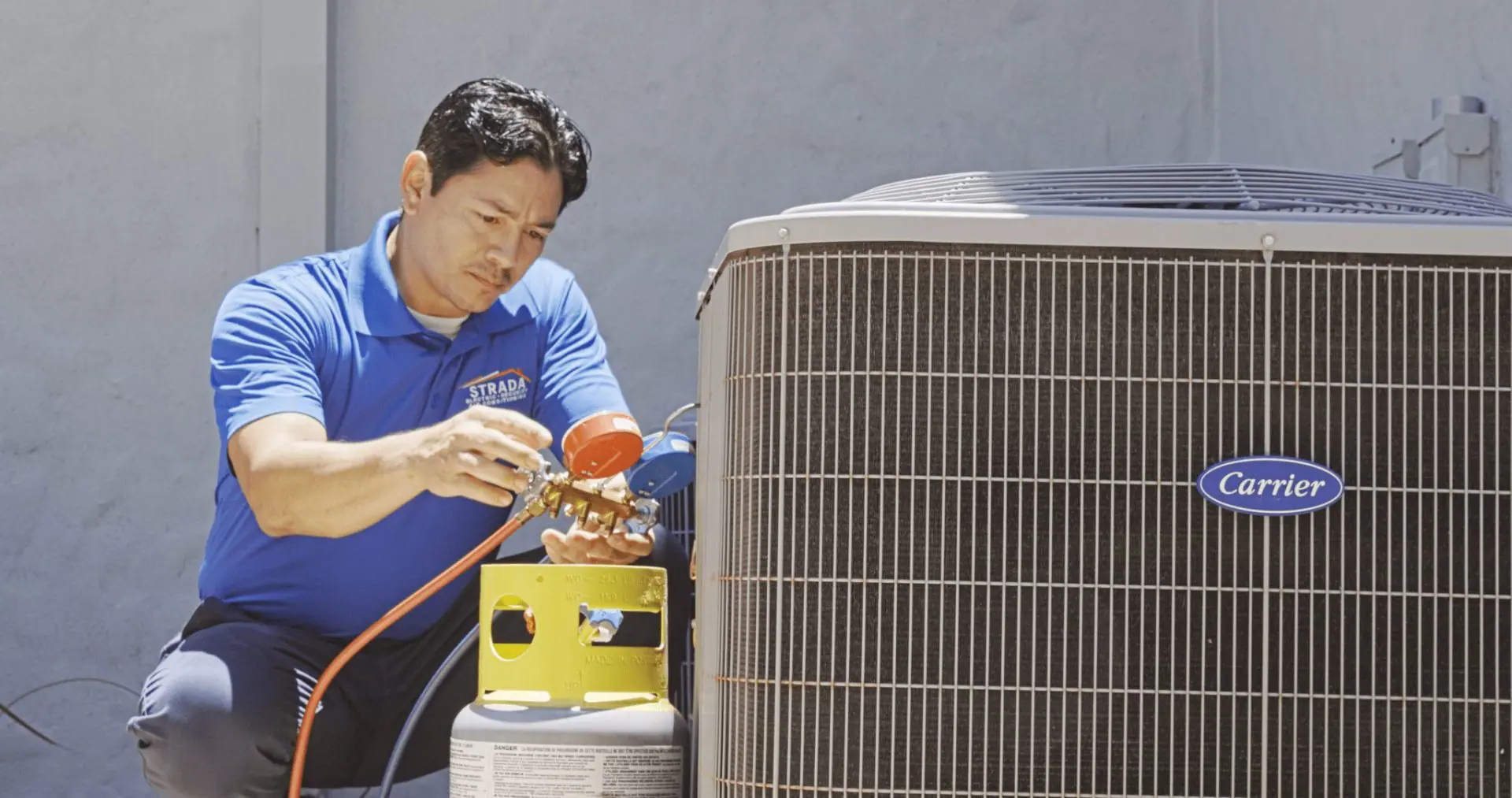Picking Between a Heatpump and Heating System: Key Considerations for Your Heating And Cooling Requirements
When reviewing home heating choices for cooling and heating requires, the decision between a heatpump and a heating system can be complex. Each system uses distinct benefits tailored to specific environments and energy efficiency goals. Recognizing these distinctions is essential for making an informed option. Trick variables such as installment expenses and ecological effect further make complex the choice process. Which alternative really aligns with one's convenience and sustainability preferences? The adhering to sections will certainly explore these factors to consider in detail.
Understanding Warmth Pumps: How They Function and Their Benefits
While several house owners consider different heating choices, understanding exactly how heatpump function and their benefits can considerably affect their decision. Warmth pumps operate by moving warm rather than generating it. In the winter months, they remove heat from the outdoors air or ground and transfer it inside, while in the summer season, they reverse this process, cooling down the home by expelling warm outside. This twin functionality makes them flexible for year-round environment control.One of the primary benefits of warmth pumps is their energy effectiveness. They make use of considerably much less electricity compared to typical heater, possibly causing lower energy bills (ductless mini splits). In addition, heat pumps have a smaller carbon footprint, making them an eco pleasant choice. They likewise call for less maintenance than conventional systems, adding to long-lasting expense savings. On the whole, recognizing the mechanics and benefits of heatpump can assist house owners make educated choices regarding their heating and cooling demands
Checking Out Heating Systems: Types, Procedure, and Advantages
Heating systems are available in different kinds, consisting of gas, electrical, and oil designs, each with distinct functional mechanisms. Recognizing these differences is crucial, as they affect effectiveness and home heating performance. In addition, furnaces offer countless advantages, such as consistent heat outcome and dependability in cooler climates.
Kinds of Furnaces
Furnace can vary considerably in style and procedure, with heating systems being a popular choice among house owners. There are a number of sorts of furnaces, each making use of different fuel sources and modern technologies. Gas heating systems are typical, leveraging natural gas to create warm effectively. Electric furnaces, on the various other hand, make use of electrical resistance to produce heat, often preferred for their uncomplicated installment. Oil heating systems, while much less usual, are effective in locations with minimal gas accessibility (furnace replacement). Additionally, condensing heaters make the most of power effectiveness by recycling and recording exhaust gases. Each type operates through a system of warmth exchangers and ductwork to distribute cozy air throughout a home. Recognizing the distinctions in between these furnace kinds is vital for informed HVAC decisions
Advantages of Furnaces
For home owners seeking trusted heat during chilly months, the benefits of heaters are considerable. Heating systems offer constant home heating, ensuring even temperature levels throughout the home. They are particularly efficient in severe cool, commonly surpassing heatpump in frigid conditions. Different kinds, consisting of gas, electric, and oil furnaces, provide adaptability to fulfill diverse needs and preferences.Furnaces also have a tendency to have reduced first installment prices contrasted to heatpump, making them a more obtainable choice for numerous. Their durable layout adds to a longer lifespan, with numerous systems lasting over 15 years with appropriate upkeep. Furthermore, modern heaters are typically equipped with advanced modern technology for boosted performance, which can result in decreased energy expenses. Overall, furnaces remain a dependable choice for effective home heating.

Power Performance: Contrasting Heat Pumps and Furnaces
When contrasting power efficiency in between heat pumps and furnaces, the Seasonal Energy Effectiveness Ratio (SEER) plays a necessary role in figuring out performance. Additionally, a functional cost analysis exposes the lasting financial implications of each system. Comprehending these variables can direct homeowners in making informed decisions regarding their home heating remedies.
Seasonal Power Performance Ratio
Power efficiency plays a necessary duty in the decision-making procedure in between heatpump and furnaces, particularly when thinking about the Seasonal Energy Efficiency Proportion (SEER) This statistics measures the cooling effectiveness of heatpump over an entire cooling season, providing a standard method to review performance. Higher SEER ratings suggest greater energy efficiency, translating to reduced power consumption and reduced energy expenses. On the other hand, heating systems are usually examined using the Yearly Fuel Usage Efficiency (AFUE) rating, which reflects heating performance. When comparing these two systems, property owners ought to focus on SEER ratings for warmth pumps, as they directly effect total power cost savings and ecological sustainability. A detailed understanding of SEER can significantly influence the long-term satisfaction and cost-effectiveness of the picked cooling and heating remedy.
Operational Price Evaluation
Understanding the functional costs related to heat pumps and heaters is essential for homeowners reviewing their options. Heatpump usually supply higher energy efficiency, transforming electrical power into warmth with very little waste. This leads to reduced month-to-month utility costs, especially in modest environments. On the other hand, typical heating systems, particularly gas versions, might have reduced ahead of time costs yet can incur greater operational costs gradually due to sustain costs and performance ratings.Moreover, warm pumps can work as both heating and cooling systems, possibly decreasing the requirement for separate a/c devices. While first financial investments for heatpump may be greater, their More Info long-lasting cost savings in energy efficiency can make them a more cost-effective choice for numerous houses. Cautious analysis of local power prices is important to determine the very best choice.
Installation Prices: What to Anticipate for each and every Heater
Installment costs for heater can differ considerably between heat pumps and furnaces, affecting homeowners' decisions. Heat pumps generally have greater ahead of time installation costs, usually ranging from $3,500 to $8,000, relying on the system dimension and complexity of installment. This consists of the outdoor device, indoor handling system, and necessary ductwork modifications. Alternatively, furnaces have a tendency to have lower preliminary costs, balancing between $2,500 and $6,000, which can be appealing for budget-conscious home owners. Nonetheless, installation expenditures can enhance if substantial ductwork is required.Moreover, the choice of fuel type for heating systems-- natural gas, propane, or electrical-- can likewise affect setup costs. While warmth pumps use power performance, their preliminary financial investment might prevent some customers. Inevitably, reviewing installation costs along with long-term financial savings and performance will certainly assist home owners in making notified choices about their furnace.
Climate Considerations: Which System Does Much Better in Your Area
Exactly how do environment conditions affect the effectiveness of home heating systems? The efficiency of heatpump and heaters can vary considerably depending upon the neighborhood environment. In modest climates, warm pumps stand out by efficiently transferring warmth from the outdoors air, making them an energy-saving alternative. Their performance reduces in extremely cold temperature levels, where they may have a hard time to draw out adequate heat. Conversely, heaters, especially gas models, provide trustworthy and constant heat no matter outside problems, making them better in colder regions.In locations that experience milder winters months, heatpump can operate effectively year-round, giving both heating and cooling. On the other hand, regions with harsh winters frequently gain from the effectiveness of furnaces. Eventually, understanding the local environment is important when deciding in between a heat pump and a heating system, as it straight affects their functional effectiveness and overall efficiency.
Upkeep Demands: Long-Term Treatment for Warmth Pumps vs. Furnaces
While both heatpump and heaters call for normal upkeep to ensure peak efficiency, why not look here their specific demands and treatment regimens vary significantly. Heating systems generally need much less regular attention, with annual assessments sufficing to look for gas leakages, clean filters, and analyze general performance. Their simpler layout typically permits uncomplicated repairs.In contrast, heatpump necessitate semiannual maintenance because of their twin function in cooling and heating. This includes cleaning coils, inspecting cooling agent degrees, and guaranteeing that both the exterior and indoor devices function at their ideal. Furthermore, warm pump maintenance usually includes more detailed components, making expert maintenance essential.Neglecting upkeep can lead to reduced efficiency and enhanced power costs for both systems. Inevitably, home owners ought to take into consideration these long-term treatment requirements when picking in between a heat pump and a heating system, as aggressive maintenance can extend the lifespan and efficiency of either system significantly.
Environmental Impact: Choosing a Lasting Heating Option
The ecological effect of heating unit is a crucial examination for home owners seeking lasting choices. Heat pumps are generally more energy-efficient than traditional heaters, as they move heat instead of generate it, significantly reducing carbon discharges. By utilizing renewable resource sources, such as air-source or geothermal heatpump, homeowners can additionally decrease their ecological footprint.On the other hand, natural gas furnaces give off greenhouse gases and contribute to air pollution, though they usually give higher heat output. Developments in technology have led to the advancement of high-efficiency furnaces that reduce emissions.Ultimately, choosing a home heating system entails considering performance versus ecological influence. House owners are motivated to mirror on regional energy resources and rewards for eco-friendly systems, guaranteeing a selection that aligns with both personal comfort and environmental duty. The choice influences not just prompt convenience but also lasting sustainability and ecological wellness.
Often Asked Inquiries
How Long Do Heat Pumps and Furnaces Typically Last?
The life expectancy of heatpump typically ranges from 15 to twenty years, while heating systems can last between 15 to thirty years. Regular upkeep substantially influences their long life and efficiency in providing home heating services.
Can I Use a Heat Pump in Extremely Cold Climates?
Heatpump can operate in very cool environments, yet their performance decreases as temperatures decrease. In such conditions, extra home heating resources might be required to keep comfortable indoor temperatures and assure peak efficiency.

What Is the Sound Level of Warm Pumps Versus Furnaces?
The sound degrees of warm pumps and heating systems vary substantially. Usually, heatpump run even more silently than conventional heating systems, making them more suitable for those delicate to sound, while furnaces may create louder operational sounds during home heating cycles.
Are Warm Pumps Suitable for Both Cooling And Heating?
Heatpump are without a doubt appropriate for both cooling and heating (furnace replacement). They work by transferring heat, offering efficient temperature level control year-round, making them a versatile option for property owners looking for an all-in-one HVAC option
What Dimension Heating System Do I Required for My Home?
Establishing the suitable dimension heater for a home requires examining variables such as square footage, insulation high quality, neighborhood climate, and the home's design. Consulting a specialist can ensure an exact evaluation and ideal convenience. Heat pumps usually offer greater energy effectiveness, transforming electrical energy into heat with very little waste. In modest environments, heat pumps stand out by effectively moving warmth from the outdoors air, making them an energy-saving option. On the other hand, heating systems, specifically gas versions, provide reputable and constant heat regardless of outside conditions, making them more suitable in colder regions.In locations that experience additional info milder winters months, warm pumps can run efficiently year-round, giving both home heating and cooling. Heat pumps are generally extra energy-efficient than conventional heaters, as they transfer heat rather than produce it, considerably reducing carbon discharges. By making use of sustainable power sources, such as air-source or geothermal heat pumps, property owners can further minimize their eco-friendly footprint.On the various other hand, all-natural gas heating systems produce greenhouse gases and add to air pollution, though they frequently offer greater warmth outcome.
Comments on “How to Save on Your furnace replacement Project”